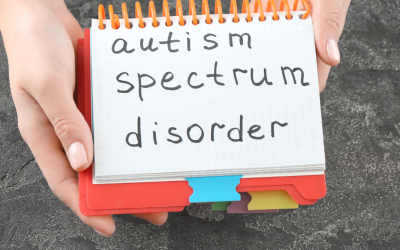Unraveling the Mysteries of Schizophrenia: Causes, Symptoms, and Treatment Options
Schizophrenia is a complex and often misunderstood mental disorder that affects millions of people worldwide. Its enigmatic nature has baffled researchers, clinicians, and individuals living with the condition for decades. In this comprehensive guide, we will delve deep into the mysteries of schizophrenia, exploring its causes, symptoms, and the best treatment options available, with a focus on finding the best psychiatrist in East Delhi for those in need.
Understanding Schizophrenia
Schizophrenia is a severe mental disorder characterized by a distorted perception of reality, altered thoughts, emotions, and behaviors. It often manifests in late adolescence or early adulthood, impacting a person’s ability to function in daily life. While the exact cause of schizophrenia remains elusive, several factors are believed to contribute to its development.
Navigating the Labyrinth: Understanding Schizophrenia Disorder
Schizophrenia disorder, a perplexing mental condition, affects millions worldwide. This enigmatic schizophrenia disorder presents itself through various symptoms, including hallucinations and delusions. Understanding the complexities of schizophrenia disorder is essential for effective treatment.
A comprehensive approach to managing schizophrenia disorder involves medication, psychotherapy, and support services. With the right treatment, individuals can navigate the challenges of schizophrenia disorder and lead fulfilling lives.
Schizophrenia Causes
The exact schizophrenia causes is still under investigation, but researchers have identified several potential factors that may play a role:
- Genetic Factors: Family history of schizophrenia is a significant risk factor, suggesting a genetic component. Having a first-degree relative with the disorder increases one’s risk.
- Neurochemical Imbalance: Imbalances in brain chemicals, particularly dopamine, may contribute to the development of schizophrenia. Medications that regulate dopamine levels are often used in treatment.
- Brain Structure and Function: Structural and functional abnormalities in the brain, such as enlarged ventricles and altered connectivity, have been observed in individuals with schizophrenia.
- Environmental Factors: Prenatal exposure to infections, malnutrition, or stress, as well as childhood trauma, may increase the risk of developing schizophrenia.
Schizophrenia Symptoms
Presenting a wide range of Schizophrenia symptoms, which can be categorized into three main groups:
- Positive Symptoms: These symptoms involve an excess or distortion of normal functions and include hallucinations (perceiving things that aren’t real) and delusions (false beliefs).
- Negative Symptoms: Negative symptoms involve a decrease or loss of normal functions and can manifest as social withdrawal, reduced emotional expression, and difficulty initiating and sustaining activities.
- Cognitive Symptoms: Cognitive deficits in schizophrenia can include problems with attention, memory, and executive functioning, making it challenging to think clearly and make decisions.
Diagnosing schizophrenia involves assessing the presence and duration of these symptoms, as well as ruling out other potential causes.
Schizophrenia Treatment
Schizophrenia is a treatable disorder, and early intervention can greatly improve outcomes. The best treatment for schizophrenia often involves a combination of therapies tailored to the individual’s needs. The primary components of schizophrenia treatment include:
- Medication: Antipsychotic medications are the cornerstone of schizophrenia treatment. They help manage positive symptoms like hallucinations and delusions by regulating neurotransmitters in the brain, particularly dopamine.
- Psychosocial Therapies: Psychotherapy, including cognitive-behavioural therapy (CBT), family therapy, and social skills training, can help individuals with schizophrenia manage their symptoms, improve functioning, and enhance their quality of life.
- Rehabilitation: Rehabilitation programs focus on helping individuals with schizophrenia develop the skills necessary to live independently, find employment, and maintain social connections.
- Supportive Services: Access to community support services, such as housing assistance, vocational training, and peer support, can play a crucial role in the recovery process.
Finding the Best Psychiatrist in Delhi for Schizophrenia
For individuals seeking best treatment for schizophrenia in Delhi, it is essential to find the right psychiatrist who specializes in the disorder. Delhi, being a vast city, offers a multitude of options, but finding the best psychiatrist in East Delhi or any other part of the city requires careful consideration.
Best Psychiatrist in Delhi for Schizophrenia
When searching for the best psychiatrist in Delhi for schizophrenia, it’s important to consider the following factors:
- Experience and Specialization: Look for psychiatrists who have extensive experience in diagnosing and treating schizophrenia. Specialization in this area can be a significant advantage.
- Reputation and Reviews: Research online reviews and ask for recommendations from trusted sources to gauge the reputation of the psychiatrist.
- Communication and Rapport: Effective communication and a good rapport between the patient and the psychiatrist are crucial for best treatment for schizophrenia.
- Treatment Approach: Inquire about the psychiatrist’s treatment approach, including their use of medications and psychotherapeutic techniques.
- Availability and Accessibility: Consider the location of the psychiatrist’s clinic and their availability for appointments.
- Cost and Insurance: Discuss the cost of treatment and whether the psychiatrist accepts your insurance, if applicable.
Schizophrenia is a complex mental disorder with multifaceted causes, diverse symptoms, and a range of treatment options. While the exact causes of schizophrenia continue to elude us, advances in research and the expertise of best psychiatrists in Delhi offer hope for individuals and their families.
If you or a loved one is living with schizophrenia, seeking timely and effective treatment is essential. By understanding the causes, recognizing the symptoms, and carefully selecting the best psychiatrist in Delhi for schizophrenia treatment, you can embark on a path toward recovery and improved quality of life. Remember that schizophrenia is a treatable condition, and with the right support, recovery is possible.

















